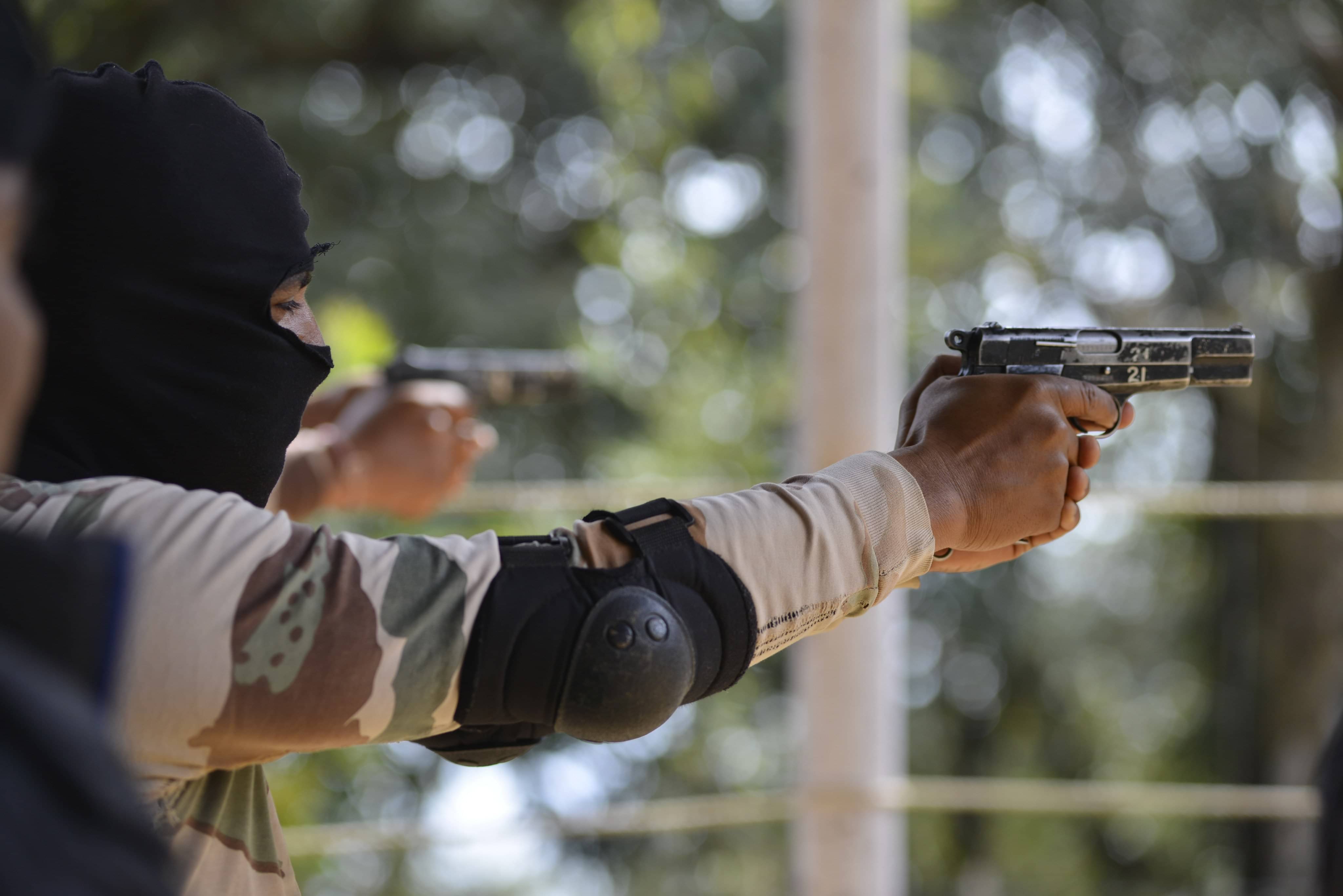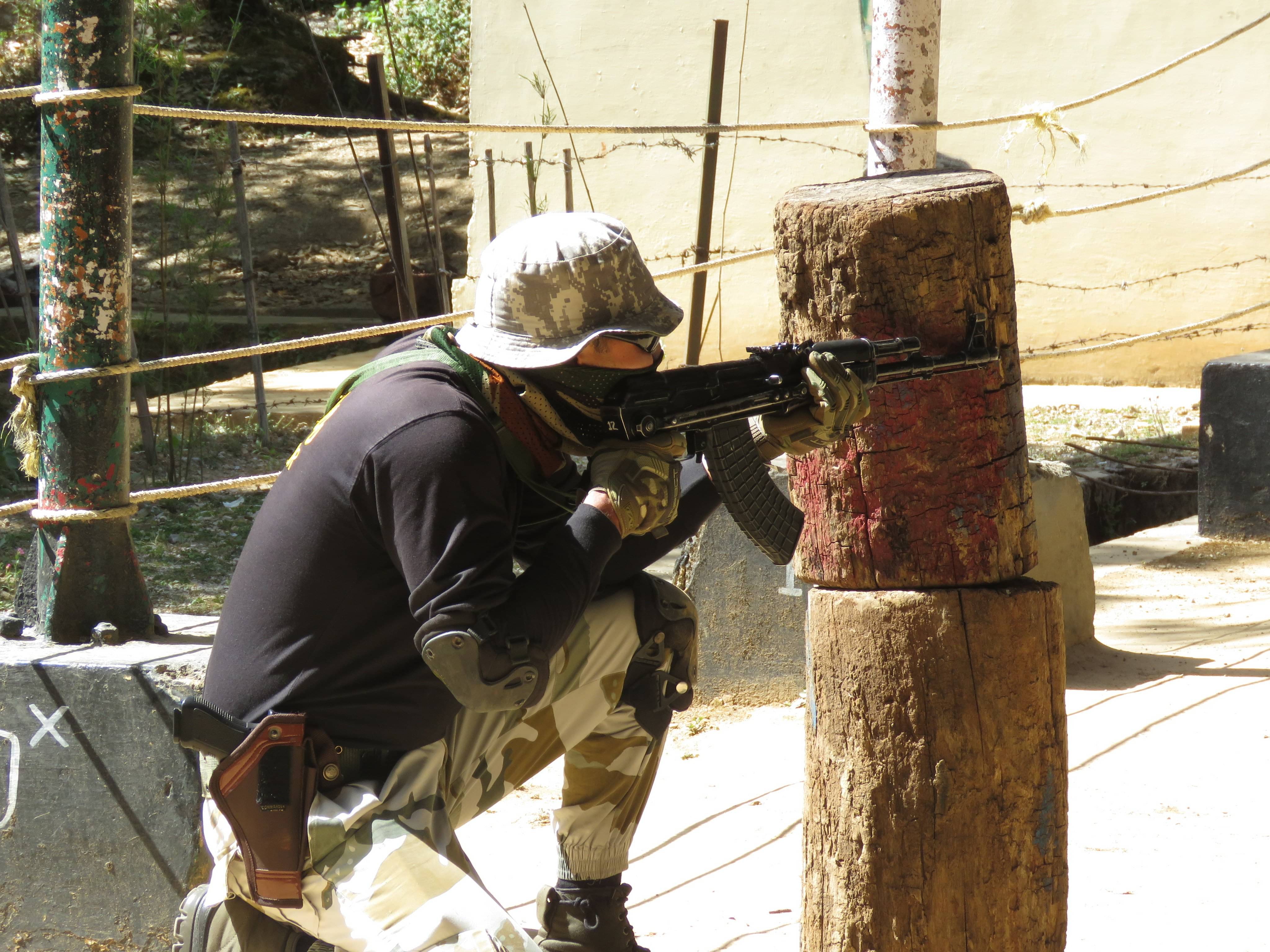Updated August 15th 2024, 13:06 IST
ITBP Jawans, Including Women, Brave the Night in High-Risk Patrols Along the LAC
At the Kibithu border in Arunachal Pradesh, ITBP personnel, including both male and female jawans, conduct rigorous night patrols to ensure border security.
- Defence News
- 4 min read
Kibithu, Arunachal Pradesh: The Indo-Tibetan Border Police (ITBP) is entrusted with one of the most arduous and critical tasks in India's defence landscape—guarding the Line of Actual Control (LAC) along the border with China. Stationed in some of the world's most inhospitable and treacherous terrains, the ITBP jawans, both male and female, conduct regular night patrols to ensure the sanctity of the border. Republic Digital gained exclusive access to witness one such midnight patrol at the Kibithu border, where the Chinese posts and installations are visible to the naked eye.
Every morning the ITBP jawans both male and female take part in rigorous PT activities and Yoga amid the beautiful mountain peaks covered with clouds. Just across the area, at a stone's throw distance is the Chinese border visible with naked eyes. The PTE includes full body exercises, Yoga, Pranayam and other breathing exercises to maintain physical agility and mental strength in these high altitudes.
The Night Patrol Operation
The night patrolling conducted by the ITBP jawans is not just a routine task but a tactical operation essential for maintaining surveillance and preventing any untoward incidents along the LAC. The patrol witnessed by Republic Digital took place in the deep forest areas of the Lohit River valley, a location fraught with dangers from both nature and the proximity of the border.
The jawans, equipped with advanced gear such as headlights, body-worn night vision cameras, shock buttons, multi-utility knives, binoculars, maps, ropes, and ice axes, navigated the dense forests with precision. On one side of the patrol route lay the perilous gorge leading to the swift currents of the Lohit River, while on the other side stretched an expansive, dense forest. The ITBP personnel meticulously covered every nook and corner, ensuring that no suspicious activity could go undetected.
Women in Action
One of the most remarkable aspects of this operation was the participation of women jawans alongside their male counterparts. The inclusion of female personnel in such high-risk operations reflects the evolving dynamics of the Indian armed forces, where women are increasingly taking on roles traditionally dominated by men. Their presence in the night patrol underscores the ITBP's commitment to gender equality and the empowerment of women in uniform.

The Kibithu border is a critical point along the LAC, and the presence of Chinese installations nearby adds to the strategic importance of the area. The ITBP's vigilance in this region is crucial for maintaining India's territorial integrity and for preemptively addressing any potential threats. The midnight patrols are a key component of this strategy, ensuring that the Indian side of the border is secure and that any movements or activities from across the border are monitored in real time.
About the Indo-Tibetan Border Police
The ITBP is a paramilitary force established in the wake of the 1962 Sino-Indian War. Initially formed with just four battalions, the force was tasked with intelligence gathering, conventional and guerrilla warfare, and enhancing communication systems along the Chinese border. Over the decades, the ITBP has expanded and evolved, now boasting specialized battalions and training centres. It has played a vital role in India's defence, not only along the LAC but also in various internal security operations.

In 2004, the ITBP assumed full responsibility for patrolling the entire 3,488 km long border with China, a role previously shared with the Assam Rifles in the northeastern states of Sikkim and Arunachal Pradesh. This move was part of the "One Border, One Force" principle, ensuring that the ITBP's expertise and focus on the Chinese border were fully utilized.
Historical Context
The ITBP has a rich history of involvement in significant national and international events. From providing security during the 1982 Asian Games and various international summits to combating insurgency in Punjab and Jammu & Kashmir, the ITBP has consistently demonstrated its versatility and commitment. Its role in the Kargil War and subsequent restructuring of border security further solidified its position as a key player in India's defence architecture.

The night patrols conducted by the ITBP along the LAC are a testament to the bravery and dedication of the jawans who stand guard over India's borders. In the face of harsh environments and potential threats, both male and female ITBP personnel carry out their duties with unwavering commitment.
Published August 10th 2024, 15:44 IST